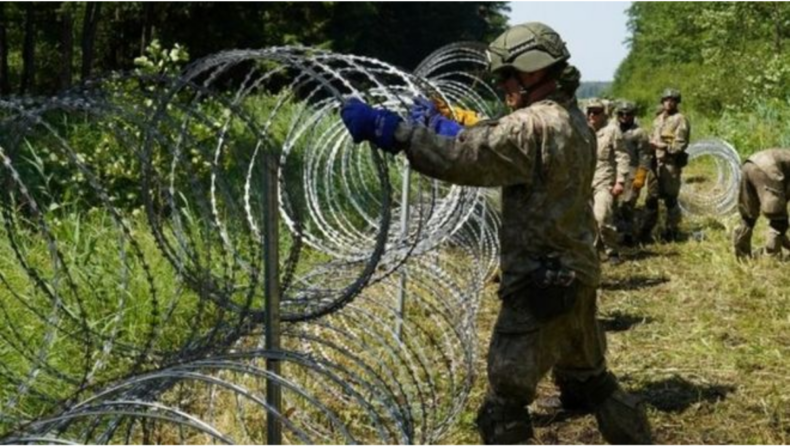
Belarus has been importing migrants from Latvia, Lithuania, and Poland to its western frontiers. While this may appear to be a tactic to prevent rising immigration. It’s Belarus’s most recent attempt at hybrid warfare against its neighbors. Hybrid warfare became more common as a method for achieving military and political goals by both state and non-state actors. State and non-state entities are increasingly employing lawfare as a non-military tool in hybrid warfare.
Belarus has transferred many migrants to its neighboring countries. Allegedly with the hope that their presence at the border would put pressure on Latvia, Lithuania, and Poland. To accept the enormous influx of migrants or violate international human rights treaties. The use of foreign migrants at Belarus’s borders appears to be a form of lawfare.
Migrant deployment in Belarus
Belarus’s deployment of migrants to the border has proved successful as an example of hybrid warfare. The influx of migrants has destabilized the political situation. With the strategic purpose of punishing Belarus’s neighbors and the EU for sanctions imposed on the country. As the temperature drops in the winter months, this destabilization will only worsen. At least five migrants are said to have perished so far.
The European Court of Human Rights is likely to be involved in the legal aspect of this maneuver (ECHR). Belarus is the only European country that is not a signatory to the European Convention on Human Rights (ECHR). It allows it to act outside of European norms while also enforcing them against its citizens.
Belarus’ treatment of migrants at its western border is a heinous breach of human rights and international law. But one for which the ECHR has no jurisdiction. Migrants have expressed their dissatisfaction with the lack of food, housing, and medicine in Belarus to relief workers and journalists. However, when Belarusian border guards pushed refugees toward the western border, these migrants have little choice but to turn to the ECHR. As to seek redress against the court’s surrounding countries which are Latvia, Lithuania, and Poland.
Is Belarus responsible for these occurrences?
Belarus is purposefully utilizing migration to put pressure on the EU and sow conflict inside the bloc. This problem may be called hybrid warfare. Hence, it amounts to state-sponsored human trafficking. To force the EU and its member states to comply with Belarus’s requests, will particularly lift the sanctions.
Any concessions to Belarus could bolster the rise of right-wing parties in Europe. Moreover, it exacerbates the divide which is already present inside the EU. Concerns were already there that Poland may “Polexit” the EU over migration and other factors.
Belarus also engages in “lawfare” by pressuring EU member states to disobey international and EU law by detaining and returning migrants to Belarus. Resulting in the violation of international law’s principle of non-refoulment. This will send refugees back to places where they may be injured.
What part does Russia play in all of this?
When it comes to hybrid and grey-zone operations against the west, Lukashenko appears to have taken a page from Russian President Vladimir Putin’s playbook. Russia has already been accused of manipulating illegal immigrants to advance its political agenda.
Thousands of refugees and migrants found their way to Norway and Finland from northern Russia in late 2015 and early 2016. As aided by the Russian escorts in convoys of disused automobiles. Then, all of a sudden, the flow of people came to a halt.
Officials in Europe suspected Russia of boosting migrant flows. It was the reaction to EU sanctions imposed in 2014 for Moscow’s annexation of Crimea and hybrid warfare efforts in Ukraine.
It was difficult to verify Russia’s involvement or intent due to the arbitrary nature of hybrid warfare and grey-zone operations. Many experts claim that Russian and Syrian forces attacked hospitals. Also, they used barrel bombs to drive civilians to flee.
Russia and Belarus had carried out joint military exercises. They even ordered bombers to patrol Belarusian airspace. Belarus’ EU neighbors are increasingly predicting a military confrontation.













